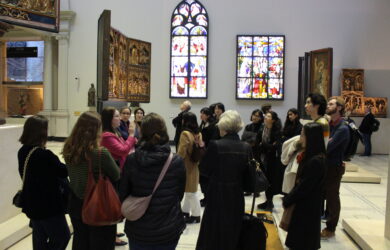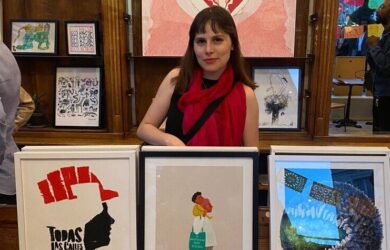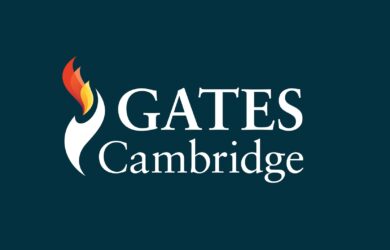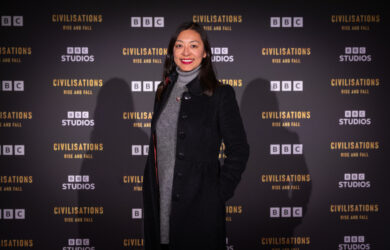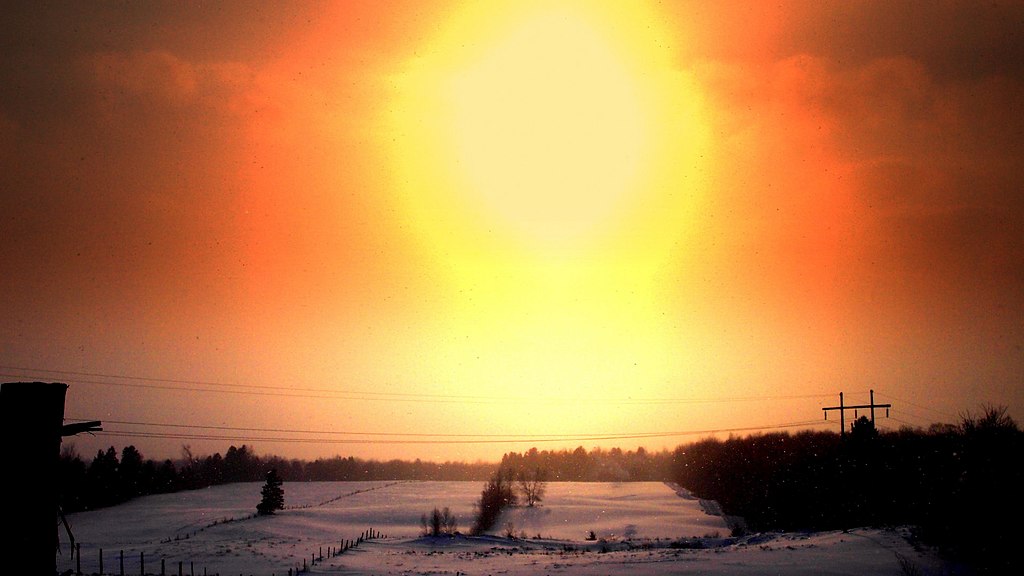
Gates Cambridge scholars are having a significant impact on work to promote a liveable environment across the world.
There are so many things in every part of society that people are doing and can do to reduce their emissions. I am really hopeful we will get to a point where we are at net zero emissions, even if it takes our whole lives, and that is an exciting goal.
Isaac Holeman
The environmental catastrophe facing the planet is the biggest global challenge to humanity of our, or any, age. With governments lagging on action, there is a sense of impotence and gloom that permeates many discussions. Talk to any climate change researcher and they acknowledge that reports outlining worrying statistics seem to be turning the general public off rather than encouraging action, with some exceptions.
They speak of the need to imagine a more positive future instead. And this is where Gates Cambridge Scholars step in with the knowledge, vision and energy to make a difference in so many different ways. Global challenges require a global response and one that is interdisciplinary. Here we highlight some of the many ways Scholars around the world are having an impact when it comes to the environment.
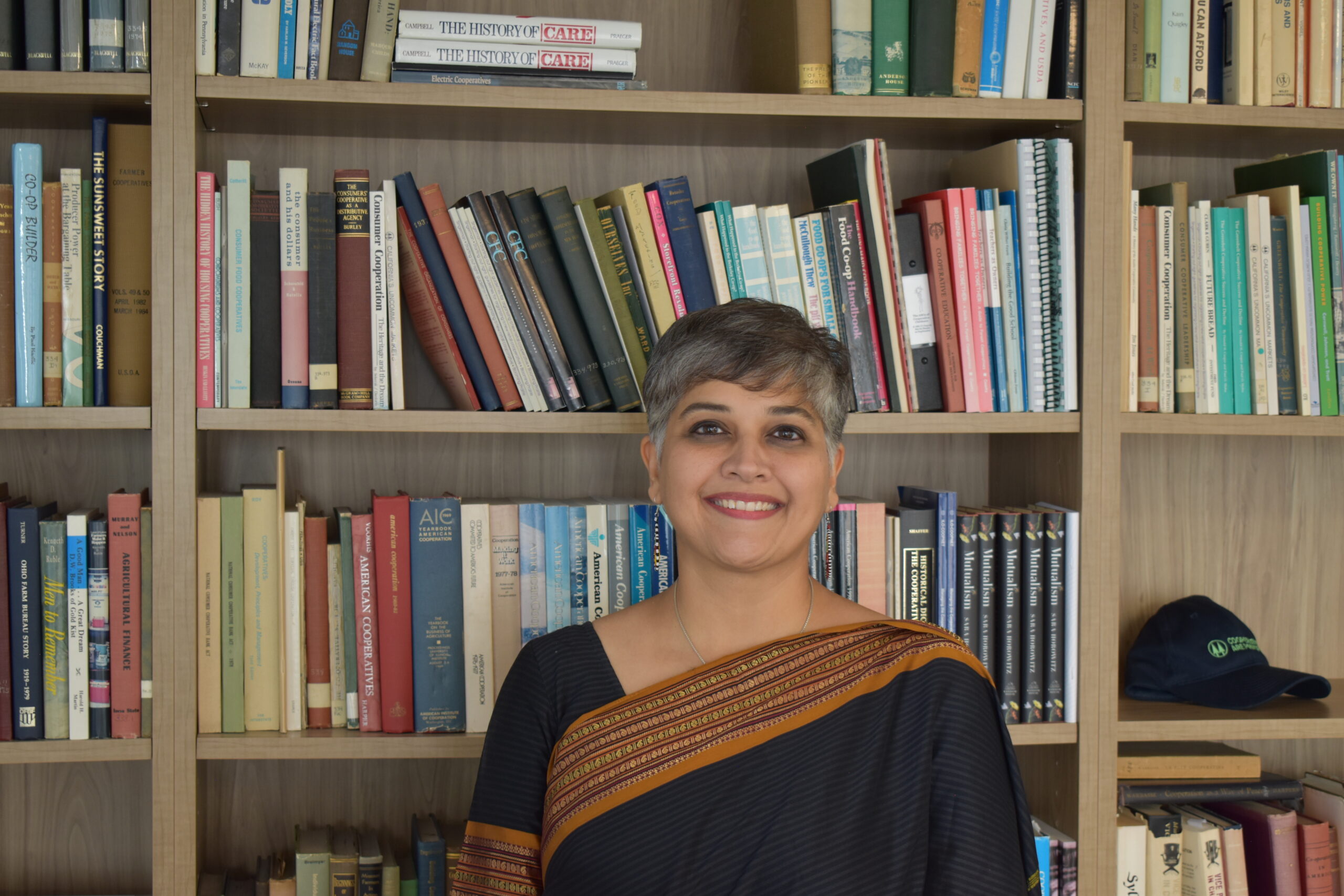 Firstly, when it comes to affecting policy many scholars have dedicated themselves to exploring and encouraging change. Rohini Chaturvedi [2007, pictured left] has worked for years to place people at the heart of conservation practice, drawing on the knowledge of grassroots movements to translate ideas into meaningful action.
Firstly, when it comes to affecting policy many scholars have dedicated themselves to exploring and encouraging change. Rohini Chaturvedi [2007, pictured left] has worked for years to place people at the heart of conservation practice, drawing on the knowledge of grassroots movements to translate ideas into meaningful action.
Through collaboration, consensus building and working with a large number of organisations, she led the World Resources Institute’s India team in creating the first publicly accessible, interactive restoration opportunities atlas of its kind for India, just after the Paris Agreement on climate mitigation was made and to support India’s implementation of its commitments to the Agreement. The WRI is a think tank which works on environmental policy.
The atlas was used to help work out, through more large-scale participatory work, a plan for action on the ground.
Recognising that secure tenure is vital for successful restoration and conservation, Rohini led the WRI India team in the development of a platform that demonstrated how complex, seemingly intractable conflicts of land ownership could be resolved using legal evidence. Rohini says: “It was a phenomenal effort. We engaged with government people and they were shocked that this was possible.”
One of her most recent roles was as strategy lead of Forest, People, Climate, a global collaborative of philanthropic donors and civil society organisations seeking to halt and reverse tropical deforestation while delivering just, sustainable development. She is proud of her work there on leading the development of the organisation’s strategic frameworks through a decentralised process that involved at least 600 people and a process of approval by regional boards. “It represented a significant shift in how philanthropy does strategy, based on asking the question what will it take to halt and reverse forest loss by 2030,” says Rohini. She is now a consultant, working for various organisations, but her goal remains the same: “to play an instrumental role in halting and reversing the damaging deforestation of our tropical forests, so that we can bring justice to our planet and the many diverse communities who make those forests their home”.
The business world
Other scholars are making a mark in the business world. They include Kate Brandt [2007], Chief Sustainability Officer at Google, leading Google’s efforts to achieve its sustainability goals across the business through both its products and its operations. That involves identifying ways that enable people to make more sustainable decisions in Maps, liaising with Google’s research team on ways to use AI in order to predict floods and trace wildfires and working with teams who are sourcing clean energy to help Google achieve 24/7 carbon-free energy. She said: “Success and climate progress will flow from working collaboratively and building awareness and consensus across teams and functions – from the product designers to the engineers, the accountants, and the lawyers.”
 Another Scholar, Isaac Holeman [2013, pictured right], already an award-winning social entrepreneur pre-Cambridge for his work on Medic Mobile which uses open source technology for healthcare in hard-to-reach communities, is co-founder of a start-up which aims to get clean, affordable renewable energy to rural areas. Croft is working on a blueprint for a hydrogen economy that is enduring, local and clean. One of its advisers is fellow Gates Cambridge Scholar Andrea Vilatela [2011], a graphene expert who also has a background in entrepreneurialism.
Another Scholar, Isaac Holeman [2013, pictured right], already an award-winning social entrepreneur pre-Cambridge for his work on Medic Mobile which uses open source technology for healthcare in hard-to-reach communities, is co-founder of a start-up which aims to get clean, affordable renewable energy to rural areas. Croft is working on a blueprint for a hydrogen economy that is enduring, local and clean. One of its advisers is fellow Gates Cambridge Scholar Andrea Vilatela [2011], a graphene expert who also has a background in entrepreneurialism.
Isaac says most of the people who work on climate change are from cities. “We were very motivated to see how we could make the transition to different forms of energy work in rural communities. The risk if we don’t tackle this is that people will be left behind, but also that they will become opposed to action on climate change. It’s a big political problem trying to get everyone involved.”
Croft began by looking at difficult to decarbonise situations, for instance, off-road trucks that travel long distances and farms where large energy-intensive vehicles like tractors operate in places that are grid constrained. Hydrogen power seemed a good solution and Croft has since been focusing on the infrastructure needed to make hydrogen cheaper and more accessible in a decentralised way so people in rural areas can produce and store it to power their vehicles. They have put together a prototype for a small fridge-sized base station which can produce hydrogen and are working with partners in rural areas to trial it.
Despite all the gloom about climate change, Isaac says he doesn’t feel powerless or despairing. “There are so many things in every part of society that people are doing and can do to reduce their emissions. I am really hopeful we will get to a point where we are at net zero emissions, even if it takes our whole lives, and that is an exciting goal,” he states.
In Latin America, Alejandro Rivera Rivera [2015] is a partner at a business – Grupo Capstone – based on engineering and sustainability consulting. Every new project developed by Grupo Capstone has to have a green building certification. Alejandro is also on the board of directors of the Guatemala Green Building Council, which his company is a member of.
Alejandro managed the building of Torre Marti, which won an award at the Latin American Real Estate Development Awards in 2018 for best affordable vertical housing project in Latin America and has been celebrated for the way it addresses problems associated with rapid urbanisation in Guatemala. The project drew on best practice in sustainable design, promoting access to mass transit and improving surrounding pedestrian infrastructure, employing energy- and water-saving strategies and reducing pollution from construction activities.
Academic research
Many scholars have remained in the academic world, although some have a foot in both academia and policy. Until recently Kim van Daalen [2018] has been cataloguing the impact of climate change on human health in her role as Lancet Countdown Research Fellow/Europe Lead. That has involved the publication of numerous reports which have won widespread coverage. Now a postdoctoral researcher with the Global Health Resilience team at the Barcelona Supercomputing Centre, she focuses on climate change, infectious disease and gender inequities.
Others are more focused on investigating what history can tell us about climate change. Stijn de Schepper [2002] and Jimin Yu [2002] are both paleoclimatologists, intent on tracing the impact of climate change on life in pre-human times. Using ancient DNA Stijn de Schepper looks at organisms which don’t leave behind fossil shells or skeletons, opening up an entirely new fossil record to find out if, why and how the environment changed in the past. Stijn is Research Professor at NORCE Climate and Environment, affiliated to the Bjerknes Centre for Climate Research in Norway. Similarly, Jimin Yu’s research aims to understand how climate and ocean chemistry has changed in the distant past through analysis of miniature shells from different locations in the ocean. Jimin is Professor of the Marine Carbon Cycle at the Research School of Earth Sciences of the Australian National University.
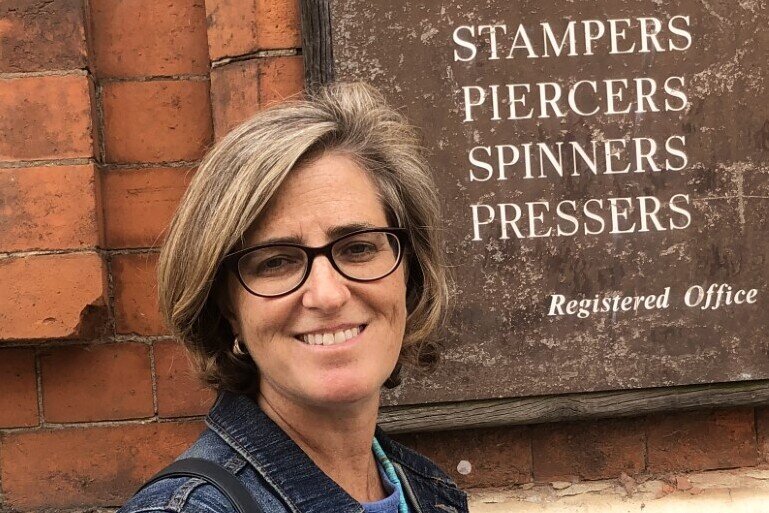 Sarah Dry [2003, pictured left], meanwhile, is a writer and historian of science and writes about the more recent history of climate change science. Sarah Sarah recently worked on the Making Climate History project, a five-year research project based at University of Cambridge, building on her previous research on the history of global temperature. It included taking oral histories of international climate scientists from that era who worked on global temperature and working on a multi-authored study synthesising 200 years of climate history. “There is remarkably little published on the history of the study of climate, considering how important it is,” says Sarah, whose work brings academic thinking to a broader audience.
Sarah Dry [2003, pictured left], meanwhile, is a writer and historian of science and writes about the more recent history of climate change science. Sarah Sarah recently worked on the Making Climate History project, a five-year research project based at University of Cambridge, building on her previous research on the history of global temperature. It included taking oral histories of international climate scientists from that era who worked on global temperature and working on a multi-authored study synthesising 200 years of climate history. “There is remarkably little published on the history of the study of climate, considering how important it is,” says Sarah, whose work brings academic thinking to a broader audience.
Her most recent book, Waters of the World: The Story of the Scientists Who Unravelled the Mysteries of our Seas, Glaciers and Atmosphere–and Made the Planet Whole – a history of the idea of global climate told in six scientific lives – was described as ‘immensely readable’ by Jenny Uglow in the Times Literary Supplement. She is currently writing a history of systems thinking and sustainability, focussing on the life and work of environmental scientist Dana Meadows.
Victoria Herrmann [2014] is also very much interested in engagement with the wider public. She was named one of the top 100 most influential people in climate policy, and is a Senior Fellow and Leadership Group member of The Arctic Institute think tank, having been its president and managing director in the past. As Assistant Research Professor at Georgetown University’s Walsh School of Foreign Service, her current research focuses on Arctic cooperation and politics and climate change adaptation in the US and US Territories. Herrmann has argued that climate change scholarship can and should inform concrete action and she encourages researchers to find their public voice and weigh the importance of storytelling for encouraging climate change action.
Several scholars have, like Sarah Dry, written books that cross over the academic barrier to reach wider publics and some books are forthcoming. Stephen Lezak [2019] is working on a book called The Longest Night which was selected as the deal of the day by Publishers Marketplace when it was made. Described as “a stunning exploration of the High North and of its Indigenous communities who are already living in the future, those for whom climate change isn’t speculation, and for whom not surviving was never an option”, it is based on Stephen’s research in Alaskan Native Village in partnership with the Tribal Councils of the Native Villages of Gambell and Shaktoolik. It proposes alternatives to current Western anxieties about climate apocalypse.
Activism
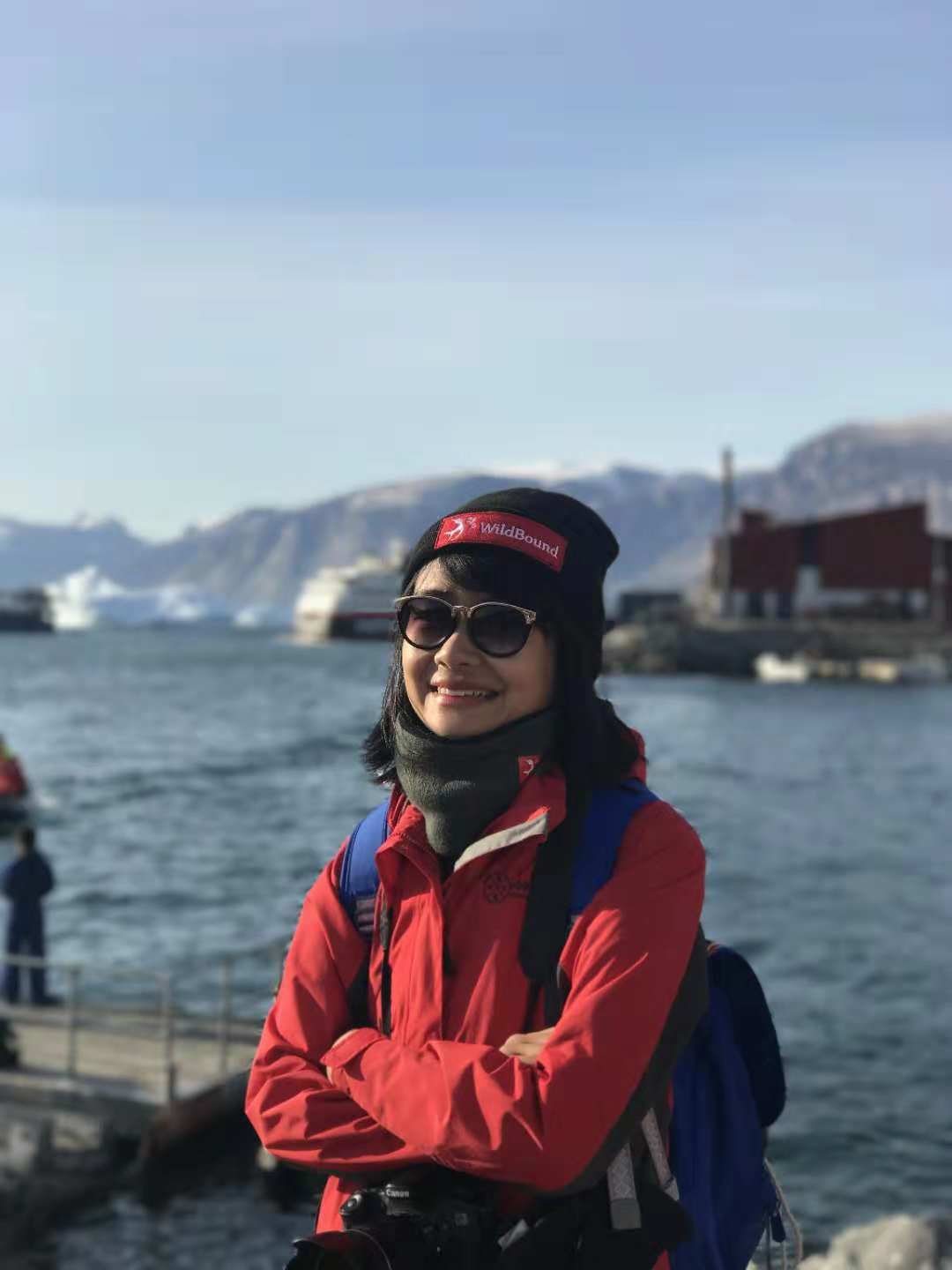 For some Scholars activism and advocacy is at the heart of what they do. Songqiao Yao [2014, pictured right], for instance, is the founder of WildBound, an innovative sustainability and education venture that empowers sustainability leadership through expeditions, advocacy and creative expressions.
For some Scholars activism and advocacy is at the heart of what they do. Songqiao Yao [2014, pictured right], for instance, is the founder of WildBound, an innovative sustainability and education venture that empowers sustainability leadership through expeditions, advocacy and creative expressions.
Meanwhile, renewable energy expert Nij Lal [2008] has furthered the science outreach he did at Cambridge by presenting a host of children’s science programmes in Australia, including ABC Kids’ Imagine This and authoring the children’s book, Henry the flying emu. He is currently a Visiting Fellow at the Australian National University’s Centre for Sustainable Energy Systems.
Gates Cambridge collaborations
For other Scholars the climate emergency has sparked new collaborations, across disciplines, with fellow members of the Gates Cambridge family. Ramit Debnath [2018, pictured below left with Kamiar], who has worked across a number of different disciplines himself, ranging from Architecture and Engineering to Politics and Computer Science.
The first Cambridge Zero Research Fellow and now an assistant professor at the University of Cambridge, he has been collaborating recently with economist, fellow Scholar and Gates Cambridge Trustee Kamiar Mohaddes [2005] on the climaTRACES lab, an interdisciplinary research initiative at the University of Cambridge which brings together climate, nature and sustainability research.
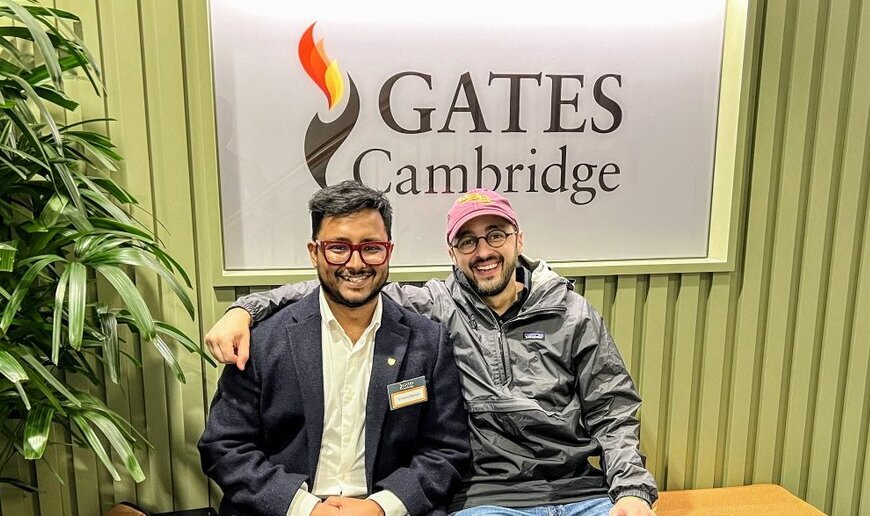 Their focus is on data-driven research and policy engagement, covering communication and communities, economic policy and markets, green and sustainable finance, and nature and biodiversity.
Their focus is on data-driven research and policy engagement, covering communication and communities, economic policy and markets, green and sustainable finance, and nature and biodiversity.
Meanwhile, Carol Ibe [2015], founder of the JR Biotek Foundation, a charity which trains, upskills and empowers present and future African agricultural research scientists, has been collaborating with fellow Scholars Albert Arhin [2012] and Chioma Ngonadi [2015]. Their project aims to map and address the disappearance of historically undervalued African indigenous and traditional food crops at a time of climate crisis. Carol is a plant scientist, Chioma is an archaeologist and Albert is a climate change and sustainability research fellow in Ghana where he also leads on a major climate adaptation project. He says: “We are trying to track the impact of climate change on certain indigenous food staples in parts of Africa to see if it is affecting the food systems there.”
For Albert his work on a number of fronts – teaching, research and policy – all combine to deliver the Gates Cambridge mission. Like him, many Scholars are addressing climate change on multiple levels. He says simply: “My different roles in education, research and policy all help me to connect with the Gates Cambridge philosophy of improving the lives of others.”
*Picture credit: John Dinan/J P Treggett and Wikimedia commons.








